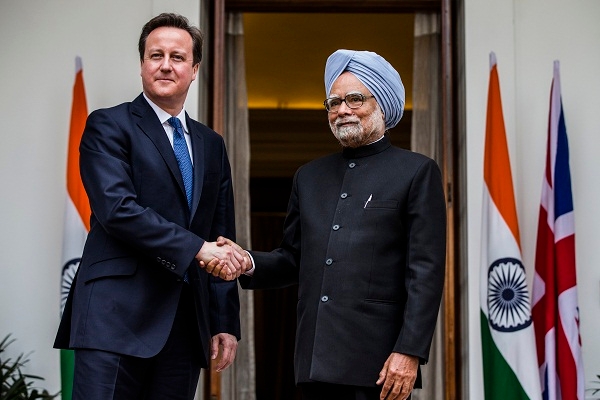Why can’t politicians resist the temptation to comment? Hilary Mantel’s piece in the LRB is about as political as the pasta I was eating when David Cameron stopped darkening Indian doors for a moment to make what political strategists and pundits term “an intervention” on the matter.
What possessed him (and Ed Miliband, who followed him into the mad breach)? The question is best answered, I think, by Peter Oborne in The Rise of Political Lying and much of his other writing. Oborne describes how political reality has changed. There was a time, at least in theory, when politics was determined by arguments over a verifiable truth; but this has been replaced by a competition of narratives. The era of ‘truth’ might be defined simply as: which ideas work. And the era of ‘narratives’ might be defined as: which ideas are most attractive. The former is battle of results, the latter a set of pitches. The first is a clash of ideas and records, the second a test of credibility. The one is fought over the whole country; the other is aimed at a handful of targeted voters, and a complicit media.
Oborne reasoned that the new order’s revolution was to elevate action to the status of achievement. The logic is that action implies achievement and is therefore sufficient – why bother proving that an idea works if it only needs to credible. This insight has been echoed by Daniel Hannan and Douglas Carswell at various stages of their careers, by numerous liberal champions and by several warriors on the left – Austin Mitchell’s cauterisation of successive governments’ failure to reform the Common Fisheries Policy springs to mind.
These figures do not share much in common beyond the belief that action is insufficient, and an observation that action is always spun with the “right language”. This does not necessarily mean political correctness, although one might argue that PC is the lingua franca thanks to the dominance of liberalism in modern life. The “right language” is that with which people can identify; used to elaborate stances with which they sympathise. There is much to be gained, it is supposed, by showing opponents using the wrong language; or, better still, goad them into using the ‘wrong language’ preferably while striking the wrong pose. This suggests a binary world of right and wrong; but the morality is invariably a sham of synthetic indignation manufactured for effect. A small housing benefit cut is presented as a “bedroom tax”, while the government can professes disgust at the debt-reliant opposition even as it raises the national debt to unprecedented and perhaps unsustainable levels. At least there is irony in politics.
These tactical set-pieces and linguistic gambits are not limited to high politics. It is important to be “on message” at all times. The message doesn’t always have to be political; in fact, the received wisdom is that it is good for a politician to map their hinterland and personality. The tactician’s creed decrees it sinful to miss an opportunity to make ‘the right noises’ on subjects (like popular novels and the royals) that might appeal to some voters. To do so may leave one vulnerable to the ‘out of touch narrative’ or give the other guy a chance to exploit. The received wisdom is not poor: it’s a fine thing for a politician to appreciate the world outside his window, but he must be genuine. Yet because sincerity is no longer prized it is acceptable, at least in some reaches of Westminster and Fleet Street, for a politician to comment on something of which they have little or no knowledge and still less sympathy. This is why politicians have a ‘line’ on Hilary Mantel and the Arctic Monkeys.
Yet they do not learn from the embarrassment of being caught out. One cannot even be credible without being sincere. The counter-argument, that Mantel and the Monkeys are trivial, misses the point. If we can’t trust a politician with the trivial, should we trust them with the serious?






Comments